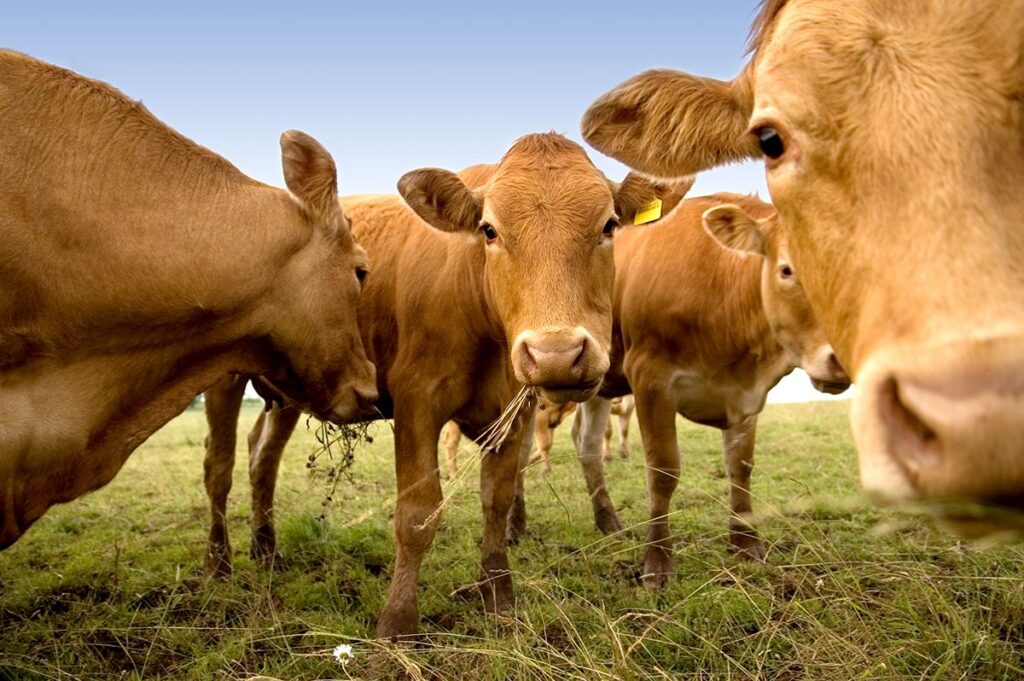Increasing the productivity of a farm to remain profitable is the main challenge facing a farmer. However, there are currently a number of external and internal factors that hinder this goal. In addition to the high cost of raw materials and energy resources, which undermine the economic capacity of the farm owner from the outside, everything related to the state of health of the animals will have a decisive impact, positive or negative, on the stability of the farm.
That is why disease prevention has become a fundamental part of the correct functioning of a livestock business. Implementing adequate preventive measures is the first action that must be contemplated in a correct strategy aimed at avoiding the appearance of diseases in order to guarantee the good health of the animals on the farm.
The application of a precise disease prevention plan has an obvious advantage: it will be more effective and more economical than the treatment of an already developed disease, by focusing on reducing the risk factors in a livestock farm and strengthening the immune system of the animals.
A correct prevention strategy includes measures related to farm biosecurity, animal nutrition, management of stressful situations and vaccination programs, among others.
The issue of biosecurity is central.
The cleaning of livestock complexes, the installation of adequate ventilation systems, the constant supply of clean feed and water and the correct management of livestock waste must be complemented by a series of practices designed to prevent the penetration and spread of infectious agents inside the buildings. These include access controls, which limit the presence of unauthorized personnel or other animals; quarantine for newly arrived animals; control and prevention of the presence of vectors that can introduce diseases; and personal hygiene measures, such as regular hand washing and disinfection, and the use of appropriate protective clothing and equipment.
By limiting the exposure of animals to pathogens and providing hygienic environments, the risk of disease is greatly reduced.
Likewise, a prevention strategy should include balanced and nutritious diets that help animals, at each life stage, to maintain a strong immune system.
The minimization of stress factors and the correct management of situations that can provoke anxiety in animals are also concepts of special incidence in disease prevention.
The other great tool is vaccination.
It is a highly effective protocol for stimulating the immune response of farm animals and providing them with increased protection against infectious diseases. Thanks to vaccination programs, the animals’ production of antibodies, specific immune cells and immunological memory is accelerated.
Other positive aspects of vaccination are its special contribution to reducing the incidence and severity of livestock diseases and its role as a disease ‘firewall’ by minimizing the chances of animals being asymptomatic carriers or spreaders of pathogens.
But where we want to place special emphasis is on the contribution of vaccination to the reduction of antibiotic use.
Focusing on disease prevention reduces the incidence of secondary bacterial infections that usually need to be treated with antibiotics. Vaccination therefore mitigates the risk of the development of bacterial resistance, one of the major global public health and animal health problems, and certifies a more responsible and selective use of antibiotics on livestock farms.
Original news: The importance of disease prevention in shaping the future of livestock farming- Zendal (30/11/2023).
For BIOGA, it is a priority to promote intersectoral collaboration between entities and to power networking activities, both national and international. If you want to know more about us, please click the following link.
- Zendal focuses on the importance of disease prevention in shaping the future of livestock farming
- Campomayor wins Cepyme award for Technological Innovation
- The city of Vigo will host on June 12 and 13 “Galicia Biodays 2024”, the second edition of the reference forum for the biotechnology industry in the European Atlantic Area
- Biotechnology at the service of Iberian SMEs and entrepreneurs with IberoBio
- Galicia to market the world’s first DNA vaccine against canine leishmaniasis
- Bilbao, epicenter of the ‘foodtech’ revolution with the celebration of the new edition of Food 4 Future
- The EU grants 7 million euros to the «Nutritive» project in Lugo for the valorization of slurry
- Ascendo joins SILO to create Spain’s first consulting firm in innovation and healthcare
- Bioga exceeds one hundred members and consolidates its position as a reference in the Spanish biotechnology sector
- Glecex, Bioprana, ODS Protein and Limnopharma: chosen by APTE among the top 100 startups of 2023

